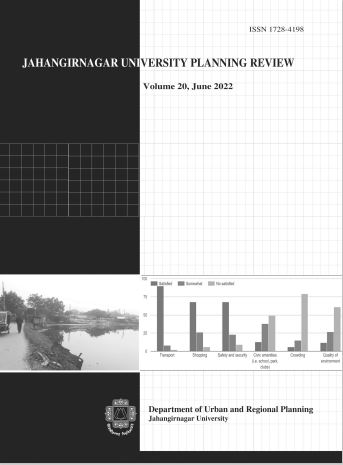Analysis of Housing Satisfaction of the Dwellers in Pabna Sweeper Colony as urban low-income housing in Bangladesh
Main Article Content
Abstract
The housing situation of Bangladesh's urban poor is deplorable. Bangladesh's progress in
terms of healthy housing is hampered by rapid population expansion, an unequal political
hierarchy, a poor economy with widespread poverty, and a lack of interest in devising
and executing practical measures. Housing for the poor, however, is a basic necessity for
survival. The goal of this study is to assess user satisfaction of the Pabna Sweeper Colony
in terms of lodging, utility services, and community facilities, all of which are important
aspects of housing. The low-income residents of Pabna Municipality have low sanitary
and educational facilities. They grudgingly accept the reality of their living quarters. They
lack access to basic needs such as gas for cooking, drainage systems that are exposed and
dirty, making the environment unlivable, and dwellings and housing elements that are
barely adequate to support life. Women and children suffer as a result of their lack of
privacy and open space. These factors have resulted in an unfavorable condition in the
Pabna Municipality. The government has made very little effort to solve housing issues,
such as accessible utility services, sufficient sanitary and drainage facilities, and
community services. The significant findings of this study showed a relationship between
housing satisfaction and the quality of basic facilities.

